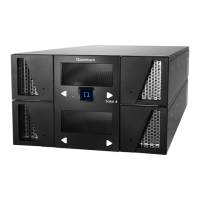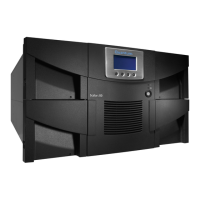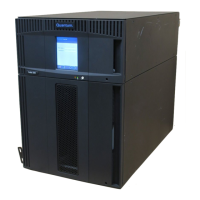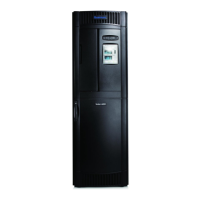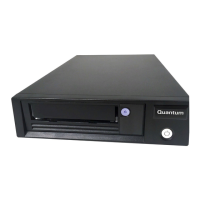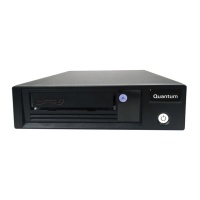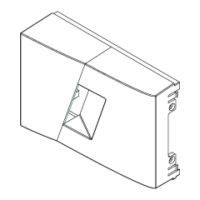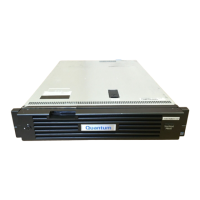Chapter 4 Configuring Your Library
Configuring Devices
Scalar i2000 User’s Guide 152
SCSI Host 4
During device discovery, a particular partition or drive could map to a
higher LUN space than is optimal for a particular application. The SCSI
Host command enables you to create a virtual private remapping of
available LUNs for a specific SCSI channel-attached host. Use this
command to make devices appear to the host as if they were at lower
LUNs in order to optimize system performance.
Depending on host operating system constraints, it might be necessary to
reboot or reconfigure the host because of device map changes that result
from using the SCSI Host command.
Creating SCSI Host LUN Mapping Assignments
1 Log on as an administrator.
2 Make sure that you are viewing the physical library. From the View
menu, click the name of the physical library.
3 Click Setup→ Device→ Access→ SCSI Host.
Use the SCSI Host command to map partitions
when a SCSI channel host is connected to the MCB.
If you change LUN mapping after host computers
or applications have already discovered devices,
you must make sure that device discovery occurs
again. Device discovery could occur
automatically when you reboot the library. Some
host computers have plug and play capability,
which can discover devices automatically. Host
applications might discover devices
automatically.
